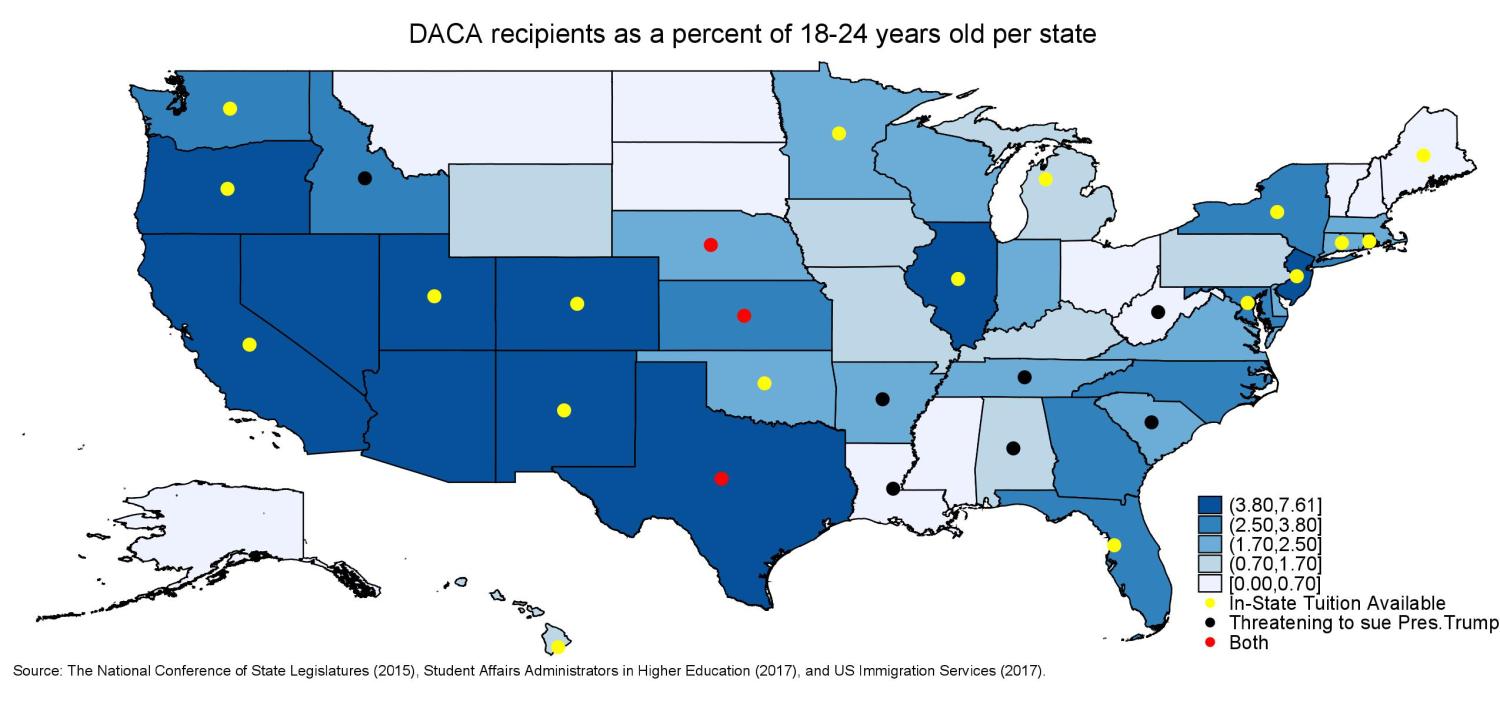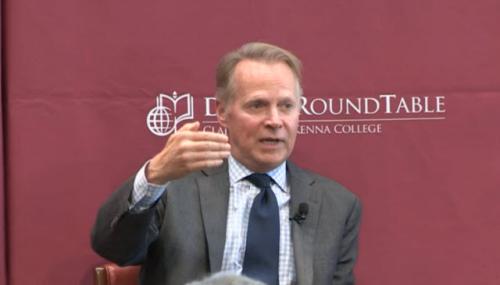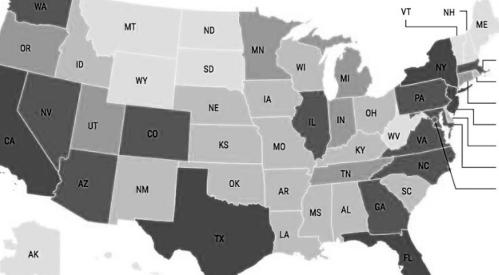On Friday, September 22, Brookings held an event on immigration policy in Trump’s America. Elaine Kamarck, founding director of the Center for Effective Public Management, introduced a panel that included Senior Fellow John Hudak (moderator); Janet Napolitano, former Homeland Security secretary; Doris Meissner, former commissioner of U.S. Immigration and Naturalization; and Carlos Guevara, senior policy advisor, UnidosUS.
Panelists did address DACA, among other issues. Full video is available here.
On September 5, President Trump announced his intention to end the Deferred Action for Childhood Arrivals (DACA) program and called on Congress to pass a replacement. Since then, rumors have emerged that President Trump and congressional Democratic leaders reached an agreement that would prevent the termination of DACA protections and the possible deportation of its 800,000 beneficiaries.
What is DACA ?
DACA, which was passed as part of the Obama administration’s immigration policy in June 2012, allowed some individuals who entered the country illegally as minors to receive a renewable two-year period of deferred action from deportation and be eligible for a work permit.
Repealing DACA would cost the U.S.
Brookings Senior Fellows John Hudak and Elaine Kamarck highlight the human and economic costs of repealing DACA, and address how politically unfavorable the decision would be. Hudak and Kamarck explain that the United States would lose the $2 billion a year in tax revenue that these people (sometimes known as Dreamers after the DREAM Act legislation that would give DACA beneficiaries a path to legal residency), pay if DACA recipients are deported. On top of that, the scholars calculate that the cost of deporting these young adults would cost nearly $10 billion.
Likewise, repealing DACA would have a human cost as well. Brookings Rubenstein Fellow Andre Perry discusses how the repeal of DACA could lead to the expulsion of hundreds of thousands of young people who are acculturated to U.S. society. These young people must have come to the U.S. when they were under 16. The average Dreamer arrived in the United States before the age of six. Perry explains that DACA is “like a jobs program” and does not grant Dreamers citizenship or immunity from being deported. He argues that the decision to repeal DACA “does not address the issue of a broken immigration system.”
In addition, Perry takes issue with the timing of President Trump’s announcement, which he made as Texas was beginning to recover from Hurricane Harvey. Perry explains that when Harvey devastated the Houston Metropolitan area, over 500,000 undocumented residents were also affected. Perry insists that Trump’s statement undermined the sense of community that had grown in Houston, as Houstonians, “regardless of race and citizenship status, are rolling up their sleeves to rescue those trapped in their homes, deliver supplies, house and feed the displaced, as well as provide medical services.”
Two-thirds of Trump supporters want Dreamers to stay in the U.S.
Using survey and polling data, Brookings Senior Fellow William Galston highlights the 60 percent of self-identified Trump supporters who want Dreamers to be allowed to stay in the United States. Galston explains that considering whether or not to allow Dreamers to stay is separate from the discussion on cancelling the program altogether, a distinction that could potentially lead Congress to pass legislation that replaces and effectively ends DACA but allows Dreamers to remain in the country legally and permanently.
In the absence of DACA, states can step up to provide higher education
Brookings Fellow Elizabeth Mann and Research Analyst Diana Quintero discuss how DACA can increase accessibility to higher education for undocumented students. Mann explains that 21 states have already either enacted laws that allow undocumented students to pay in-state tuition or have university systems that offer in-state tuition to undocumented students. If DACA is repealed, states without these laws in place (particularly states with Democratic governors and legislatures) could adopt similar laws to increase college affordability for this vulnerable population.
For more, check out additional Brookings research on immigration.
The Brookings Institution is committed to quality, independence, and impact.
We are supported by a diverse array of funders. In line with our values and policies, each Brookings publication represents the sole views of its author(s).











Commentary
The reality of DACA, the Deferred Action for Childhood Arrivals program
September 22, 2017